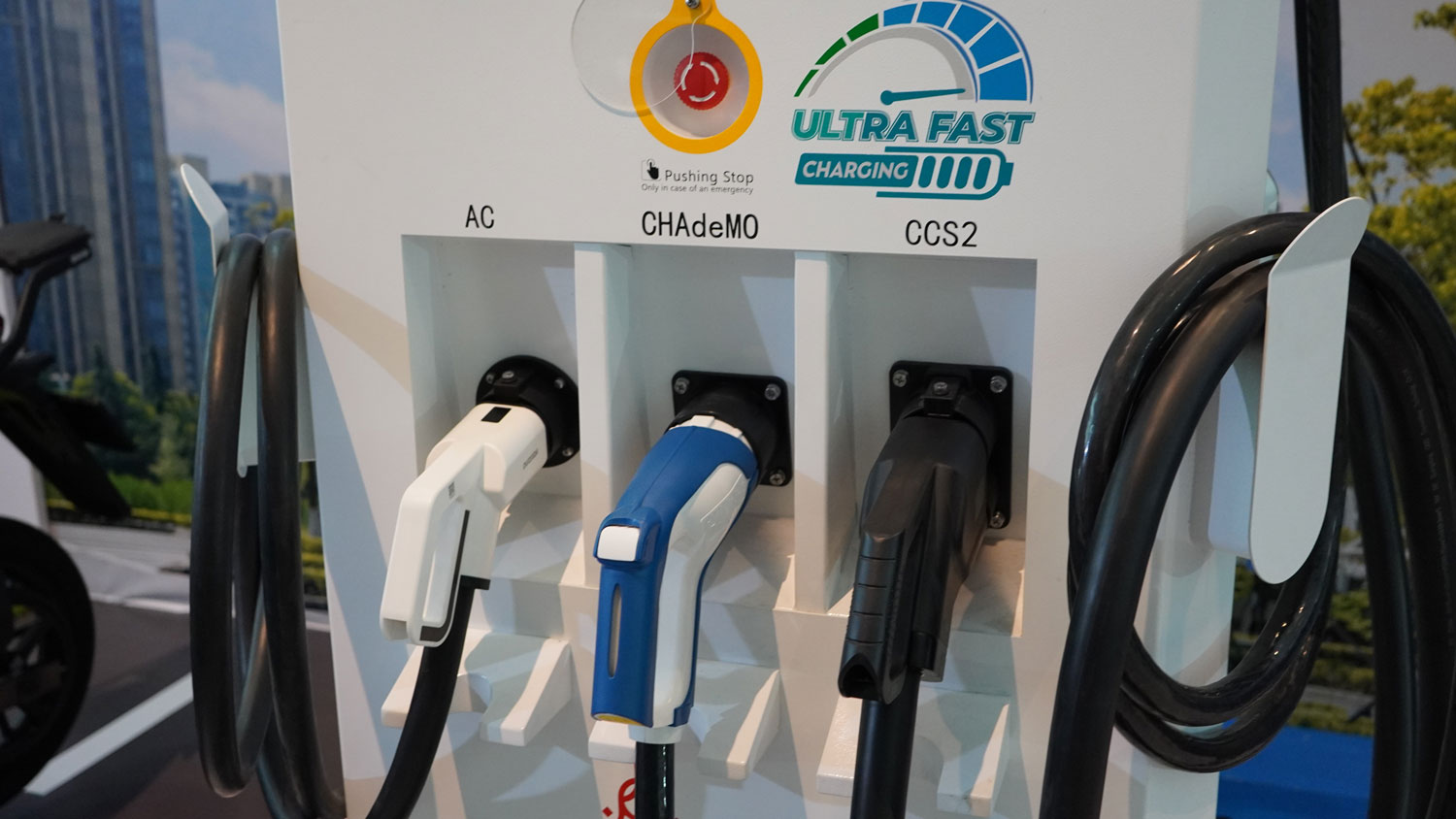
- Stats: 2191 0
- Author: Eddie Sin
- Posted: February 8, 2023
- Category: Startup and Technology News, Technology News
Southeast Asia’s EV Charging Landscape: A 2023-2025 Market Outlook Analysis
This article will provide a comprehensive analysis of the electric vehicle (EV) charging market in Southeast Asia, focusing on 3 key countries: Malaysia, Indonesia and Singapore. The article will examine the background and current state of the EV charging industry in each country, as well as identify opportunities and challenges facing the market. The goal of this analysis is to provide readers with a clear understanding of the growth potential for the EV charging business in Southeast Asia over the next two years, and to offer insights into the trends and developments shaping this dynamic market.
The growth of the electric vehicle (EV) industry has been phenomenal in recent years, driven by advancements in technology and increased consumer demand for sustainable transportation options. The number of EVs on the roads has grown dramatically, and the demand for charging infrastructure to support these vehicles has grown along with it. A comprehensive analysis of the EV charging market in Southeast Asia is needed to understand the trends, opportunities, and challenges shaping this important industry. With the increasing adoption of EVs, the charging infrastructure is becoming a critical component of the overall energy ecosystem, and it is important to understand the current state and future outlook of the EV charging business in Southeast Asia to make informed decisions about investments, partnerships, and strategic planning.
The current state of the EV charging industry in Southeast Asia is characterized by a mix of opportunities and challenges. The growing demand for EVs and the need for charging infrastructure to support them has created a market with significant potential for growth. However, the EV charging industry in Southeast Asia is still in its early stages, and there are significant barriers to entry that must be overcome in order to realize its full potential. The importance of EV charging infrastructure for the growth of the EV market cannot be overstated, as it is critical for supporting the widespread adoption of electric vehicles. Government policies and incentives play a crucial role in shaping the EV charging landscape in Southeast Asia, and they can be leveraged to encourage investment and support the growth of the industry. Through a combination of supportive regulations, incentives, and infrastructure investments, the region can create a supportive environment for the growth of the EV charging business.
Malaysia
Malaysia is one of the fastest-growing markets for EVs in Southeast Asia, with the number of registered EVs growing from just over 500 in 2017 to over 5,000 in 2021. The Malaysian government has been proactive in promoting the adoption of electric vehicles and has implemented a range of policies and incentives to support the growth of the EV charging industry. In 2020, the Malaysian government announced a MYR 500 million ($125 million) allocation to support the development of the EV charging infrastructure, which has contributed to the rapid growth of public charging stations, with over 200 charging stations now available in the country.
The EV charging industry in Malaysia is experiencing growth opportunities, fueled by the increasing demand for EVs and supportive government policies. According to a report by the Malaysian Automotive Association (MAA), the sales of EVs in the country increased by 35% in 2020. The Malaysian government is actively promoting the development of EV charging infrastructure, with plans to install 3,000 charging stations nationwide by 2030. However, the industry faces some challenges, including a lack of standardization in the charging infrastructure. A report by Frost & Sullivan states that the lack of standardization in charging plugs is a significant challenge for the growth of the EV charging market in Malaysia. According to the report, ‘the absence of a standardized charging infrastructure could discourage EV adoption and hamper the growth of the EV charging market.
Malaysia has implemented several measures to support the growth of its EV charging industry through favorable government policies and incentives. The Malaysian government offers tax incentives for EV manufacturers and charging infrastructure providers, as well as funding for research and development in the EV and charging technology sectors. A report by the Malaysian Investment Development Authority (MIDA) states that the government’s initiatives have resulted in an increase in foreign investment in the EV and charging technology industries in Malaysia. The government has also established partnerships with private companies, such as Tenaga Nasional Berhad (TNB), to further promote the development of the charging infrastructure and growth of the EV market. These policies and incentives have created a positive outlook for the EV charging industry in Malaysia, with the market expected to continue growing in the coming years. However, as quoted in a report by Frost & Sullivan, ‘investments in the charging infrastructure, standardization efforts and greater consumer awareness of EVs will be crucial for the long-term success of the EV charging business in Malaysia.
Singapore
Singapore has long been a leader in the development of clean energy technologies, including electric vehicles (EVs). Despite its small size, Singapore has a well-developed charging infrastructure, with over 600 charging stations available throughout the city-state. The government has been proactive in promoting the adoption of EVs, implementing a number of policies and incentives to support the growth of the EV charging industry.
The current state of the EV charging industry in Singapore presents a number of opportunities for growth, including a supportive government, a well-developed charging infrastructure, and increasing demand for EVs. However, the market also faces some challenges, including limited consumer awareness and a lack of incentives for private charging station owners. For example, private charging station owners in Singapore are not currently eligible for the same tax incentives as charging station providers in other countries, which can limit investment in the charging infrastructure.
According to a report by Frost & Sullivan, the EV market in Singapore is poised for significant growth in the coming years, due in part to the government’s commitment to promoting the adoption of EVs and supporting the development of the charging infrastructure. In recent years, the government has invested heavily in charging infrastructure development, with plans to install 28,000 charging points by 2030. Additionally, the Land Transport Authority (LTA) has launched initiatives such as the Electric Vehicle Early Adopter Program to encourage the early adoption of EVs in the country.
Despite having a supportive government and a well-developed charging infrastructure, the electric vehicle (EV) charging industry in Singapore still faces challenges such as low consumer awareness and limited incentives for private charging station owners. According to a report by Green Car Congress, private charging station owners in Singapore are not eligible for the same tax incentives as charging station providers in other countries, which can constrain investment in the charging infrastructure. To tackle these challenges, the Singaporean government has taken proactive measures to increase consumer awareness of EVs and provide more support for private charging station owners. For instance, the government has launched various education and outreach programs aimed at promoting the adoption of EVs, as well as providing financial incentives and subsidies to private charging station owners to encourage investment in the charging infrastructure.
In terms of government policies and incentives, the Singaporean government has implemented a number of measures to support the growth of the EV charging industry. This includes tax incentives for EV manufacturers and charging infrastructure providers, as well as funding for research and development in the EV and charging technology sectors. The government has also established partnerships with private companies, such as the charging network operator BlueSG, to promote the development of the charging infrastructure and to encourage the growth of the EV market. With these supportive policies and incentives, the future outlook for the EV charging industry in Singapore is positive, and the market is expected to continue growing in the coming years. However, further investment in consumer education and incentives for private charging station owners will be critical for the long-term success of the EV charging business in Singapore.
The Singaporean government has implemented a comprehensive approach to support the growth of the electric vehicle (EV) charging industry. According to a report by the Land Transport Authority of Singapore, the government has implemented tax incentives for both EV manufacturers and charging infrastructure providers. Additionally, the government has allocated funding for research and development in the EV and charging technology sectors, aimed at promoting technological advancements and boosting innovation in the industry.
To further encourage the growth of the EV charging industry, the Singaporean government has established partnerships with private companies, including the charging network operator BlueSG. Through these partnerships, the government aims to promote the development of charging infrastructure and to increase the accessibility of charging stations for EV owners.
Despite the supportive government policies and well-developed charging infrastructure, the EV charging industry in Singapore still faces some challenges. According to a report by Green Car Congress, one of the main challenges is the lack of consumer awareness about EVs, which can limit the demand for charging services. To address this challenge, the government has been working to raise awareness about EVs and to educate consumers about the benefits of electric mobility. Additionally, the government has been exploring ways to provide greater support for private charging station owners, such as tax incentives, to increase investment in the charging infrastructure and to ensure its long-term sustainability.
Indonesia
Indonesia is a large and rapidly developing market, with a growing demand for clean energy technologies, including electric vehicles (EVs). Despite this growing demand, the EV charging infrastructure in Indonesia is still in its early stages of development, with only a limited number of charging stations available throughout the country. Nevertheless, the Indonesian government has recognized the importance of EV charging infrastructure for the growth of the EV market and has taken steps to promote its development.
The current state of the EV charging industry in Indonesia presents a number of opportunities for growth, including a large and growing market for EVs, supportive government policies, and a rapidly developing charging infrastructure. However, the market also faces some challenges, including limited consumer awareness, limited investment in the charging infrastructure, and a lack of incentives for private charging station owners. For example, despite the growing demand for EVs in Indonesia, there are currently only around 100 public charging stations in the country, which limits the growth of the EV market.
In terms of government policies and incentives, the Indonesian government has implemented a number of measures to support the growth of the EV charging industry. This includes tax incentives for EV manufacturers and charging infrastructure providers, as well as funding for research and development in the EV and charging technology sectors. The government has also established partnerships with private companies, such as the state-owned electricity company PLN, to promote the development of the charging infrastructure and to encourage the growth of the EV market. According to a recent report by GlobalData, the Indonesian EV charging market is expected to reach $171.5 million by 2026, with a compound annual growth rate of 22.3% between 2020 and 2026. With these supportive policies and incentives, the future outlook for the EV charging industry in Indonesia is positive, and the market is expected to continue growing in the coming years.
Conclusion
In conclusion, the EV charging market in Southeast Asia has significant growth potential over the next two years, with opportunities arising from supportive government policies and the increasing demand for EVs. Among the analyzed markets, Singapore currently presents the best outlook for the EV charging industry with its well-developed charging infrastructure, supportive government policies, and high consumer awareness. A report by Frost & Sullivan, a renowned research institute, states that the government’s investment in the charging infrastructure and research and development in the EV and charging technology sectors will continue to drive growth in the market.
Furthermore, the report highlights that the EV charging market in Indonesia presents a large growth potential, due to its large population, increasing urbanization, and the government’s initiatives to promote sustainability. Meanwhile, Malaysia is also expected to see growth in the EV charging market, driven by supportive government policies and increasing investment in charging infrastructure. On the other hand, the Philippines still has room for improvement in terms of charging infrastructure development and consumer awareness, but is expected to see growth in the future with supportive government policies and increasing demand for EVs.
In conclusion, the future of the EV charging landscape in Southeast Asia is promising, and the region’s growth will play a critical role in the overall growth of the EV market. The continued implementation of supportive government policies and investment in the charging infrastructure and research and development will be key to the long-term success of the EV charging industry in the region.







